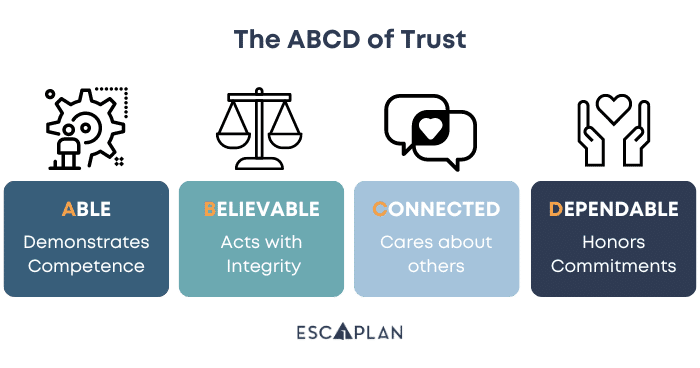
What makes a team a high-performance team? It’s a question that many leaders and organizations struggle with as they strive for excellence. For team leaders, they need to understand that high-performing teams begin effortlessly with trust. Which is the key to unlock the full potential of their teams and drive them to success.
Before we dive in, let’s understand Agile and high-performing teams. Agile teams are those that can swiftly adapt to changing circumstances, embracing flexibility and collaboration to achieve their goals. On the other hand, high-performing teams are referring to teams, organizations, or virtual groups that are highly focused on their goals and that achieve outstanding results.
Both Agile teams and high-performance teams are essential components of organizational success, each bringing unique strengths and capabilities to the business. By harnessing the power of both, organizations can adapt to change, drive innovation, deliver exceptional results, and cultivate a culture of excellence that propels them towards their goals.
Trust is a foundational element of human relationships, encompassing beliefs and expectations about the reliability, integrity, and goodwill of others.
In the context of teams, trust refers to the confidence that team members have in each other’s intentions, abilities, and reliability. When trust is present, team members feel safe to be vulnerable, take risks, and collaborate effectively, leading to enhanced performance and productivity.
Let’s explore the framework for cultivating trust within your organization, ensuring that every team member feels valued, respected, and empowered to contribute their best. ‘The ABCD of Trust’ was developed by Ken Blanchard. He is an author and researcher with decades of experience writing about the fields of leadership and management.
According to Ken Blanchard, the behaviors of trusting individuals are made up of four distinct elements, represented by the letters ABCD as ‘The ABCD of Trust’

ABLE
Demonstrates Competence
Get quality results
Resolve problems
Develop skills
Be good at what you do
Get experience
Use skills to assist others
BELIEVABLE
Acts with integrity
Keep confidences
Admit when you’re wrong
Be honest and sincere
Don’t talk behind backs
Be non-judgemental
Show respect
CONNECTED
Cares about others
Listen well
Praise others
Show interest in others
Share about yourself
Work well with others
Show empathy for others
DEPENDABLE
Honors Commitments
Do what you say you’ll do
Be timely
Be responsive
Be organized
Be accountable
Follow up
Be consistent
In essence, trust is the glue that binds teams together to be Agile and high-performing teams, enabling them to communicate effectively, collaborate seamlessly, take risks, and achieve exceptional results. Without trust, teams may struggle to work together cohesively, leading to inefficiency, conflict, and underperformance. Therefore, cultivating trust is essential for creating and sustaining successful teams in any organizational context.



